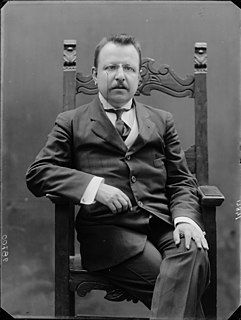A Quote by Michael Korda
The huge, turgid work of history, sinking under the weight of its own 'politically correct' thesis and its foot- and source notes, is not the British way of writing history, and never has been.
Related Quotes
Writing of history is our only heuristic principle. The Germans have a word for it, einfühlen. It is the ability to experience the past in the present and to recreate it. In my books, I have tried to recreate it in the most natural way possible: History must be integrated into the story without the weight of premonition.
In Britain, British history is naturally a mainstream subject. Step outside your own narrow specialism, and you can find yourself treading on someone else's toes. But in America, British history is an eccentric, minority pursuit, and while this can be intellectually isolating, it also permits extraordinary freedom.
The way Americans most understand the history of Latinos in this country, a lot of it is being told now through the lens of what's happening with the immigration debate. While that's an important debate that has security and moral implications, in my view, there's also a huge history of Latinos in the United States that's never been told.
As an African-American, as a woman I think that I've been sensitized to the way in which history privileges the white male and the way in which certain aspects of history, the things that we are taught in school, the things that are handed down never, never entered the picture though they might have been very important.
As an African-American, as a woman, I think that I've been sensitized to the way in which history privileges the white male and the way in which certain aspects of history, the things that we are taught in school, the things that are handed down, never, never entered the picture though they might have been very important.
'A Naval History of Britain' which begins in the 7th century has to explain what it means by Britain. My meaning is simply the British Isles as a whole, but not any particular nation or state or our own day... 'Britain' is not a perfect word for this purpose, but 'Britain and Ireland' would be both cumbersome and misleading, implying an equality of treatment which is not possible. Ireland and the Irish figure often in this book, but Irish naval history, in the sense of the history of Irish fleets, is largely a history of what might have been rather than what actually happened.
History without the history of science, to alter slightly an apothegm of Lord Bacon, resembles a statue of Polyphemus without his eye-that very feature being left out which most marks the spirit and life of the person. My own thesis is complementary: science taught ... without a sense of history is robbed of those very qualities that make it worth teaching to the student of the humanities and the social sciences.






































